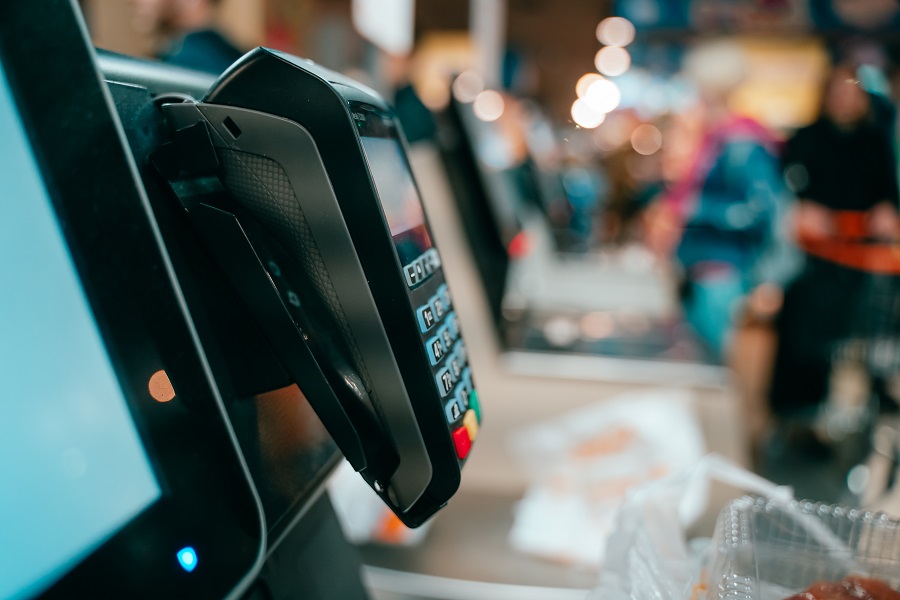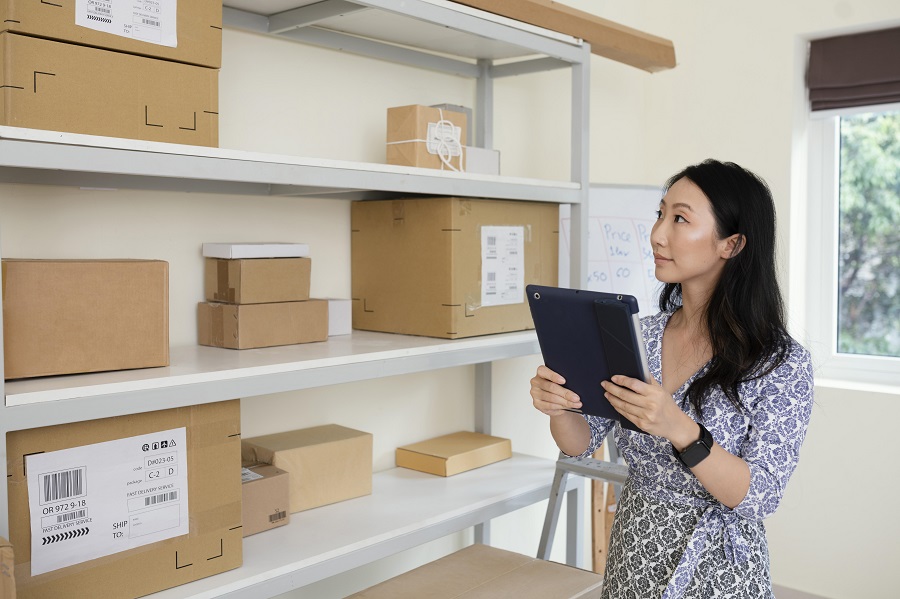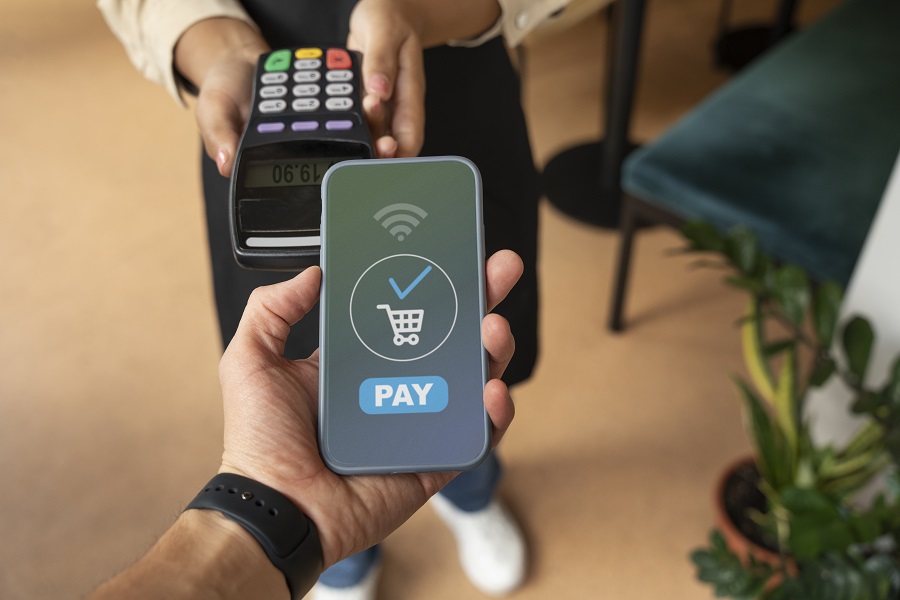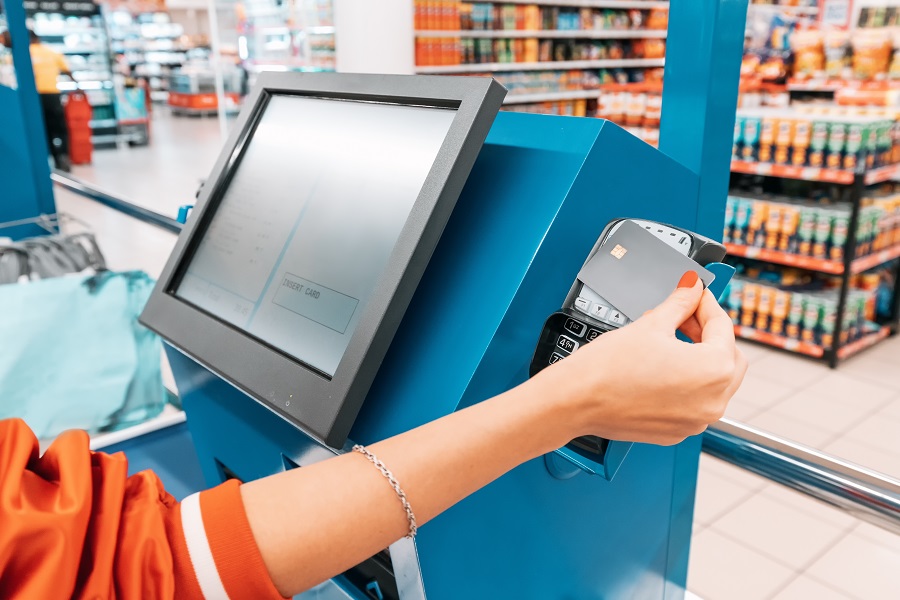05 Apr

Running a retail store means you have to keep track of every small detail like what products you have in stock, how much money customers spend, and how to get more people coming through your doors. One important tool that can help is a point-of-sale (POS) system. A POS system is a special type of computer program and hardware that retailers use to check out customers and manage their business.
While many stores have POS systems, it is important to get one that has the right retail POS features for your specific needs. There are many different POS system options on the market, and each one is a little bit different. As a small business owner, you need to find one that will best support how you run your shop and help you be successful. So, let’s discuss 13 key features that experts say are must-haves for any retail POS system.
1. Ecommerce Functionality
Many consumers nowadays do not just shop in person. They also buy products online. To meet customer expectations and drive additional revenue, look for a POS system for retail shop that integrates with your website and allows for online ordering and payments. Customers should be able to browse products, add them to a cart, checkout, and receive order confirmations all from your website. The POS e-commerce needs to then sync orders to the physical store location for fulfillment.
2. Loyalty and Rewards Program
We understand that getting customers to shop at your store over competitors is the main focus for you. A loyalty and rewards program is a great way to incentivize repeat purchases and build brand loyalty. An advanced POS should enable you to set up a customer loyalty program where shoppers earn points or receive discounts for certain thresholds. The POS then needs to track individual customer balances and reward redemptions in real-time.
3. Inventory Management

Knowing exactly what products you have in stock and where is vital for operations. Look for a POS that can scan product barcodes during receiving and track individual item quantities across all your physical locations. It should generate notifications when stock gets low to trigger reorders. The point-of-sale inventory software also needs proper reports so you always know what you have on hand.
4. Multi-Store Management
If you have multiple storefront locations, finding a POS management system that allows centralized management is a must. An all-in-one solution lets you view sales, inventory, customers, and reports for every store from one dashboard. You need the ability to push setup and configuration changes as well as transfer items between stores with just a few clicks.
5. Customer Management
Collecting customer profiles, purchase histories, and contact details is very useful for targeted marketing. You want a POS that lets you easily create customer profiles during transactions and then access them later. This helps you get to know customers, see what they buy most often, and send tailored communications. Look for integrations with marketing automation tools as well.
6. Payment Processing

Accepting various payment types is non-negotiable nowadays. Pick a POS software for your retail shop that supports all major credit and debit cards, along with emerging options like contactless, mobile wallets, and buy now pay later programs. Payment processing needs to happen fast and seamlessly at the point of sale as well as online. Integrations with leading payment gateways are important too.
7. Marketing and Promotions
Use your POS data to drive impactful marketing campaigns. Look for point-of-sale features that let you quickly design and launch personalized promotions based on purchase histories. For example, sending automated emails with a discount to customers who haven’t shopped in over 30 days. You should be able to track and analyze each campaign’s effectiveness directly through the POS interface as well.
8. Hardware Compatibility
Depending on your specific retail needs, you may require barcode scanners, receipt printers, cash drawers, and other point-of-sale peripherals. Confirm the retail POS system for small businesses works seamlessly with the hardware setup you envision for stores. Consider brands with a wide selection of certified hardware add-ons for easy installation and use out of the box.
Also Read: How to Buy POS Hardware for Your Retail Business
9. Multi-User Access & Security

As your business expands, multiple employees need to access the POS system simultaneously. However, each user needs tailored permissions based on their role. Like store managers see different data than cashiers. Look for user account types, permissions restrictions, and security features like two-factor authentication. Data protection is also essential with tools like automatic software updates and data backups.
10. Mobile POS
Many retailers benefit from an offline-capable hand-held mobile POS device. These let employees complete sales from other areas of the store or even outside using a tablet. Search for solutions offering durable mobile POS accessories certified for retail environments. Integrated card readers and barcode scanners are also important.
11. Website Integration
As mentioned earlier, combining physical and online storefronts is vital today. Confirm the POS seamlessly shares data with your company website for things like product catalogs, shipping addresses, order statuses, and inventory visibility. Customers can then get a unified omnichannel shopping experience across all touchpoints.
12. Analytics & Reporting
Actionable business intelligence is crucial for informed decision-making. A good POS compiles transactional and operational data and presents it through interactive reports, comprehensive point-of-sale analytics, and customizable dashboard views. Drill into sales trends by item, customer, location, and time period with just a few taps.
13. Support & Training
No POS platform is completely intuitive, so choose one with ample training resources and customer support. Look for documentation, how-to guides, video tutorials, a community forum, and 24/7 phone/chat assistance from implementation through daily use. Make sure the vendor also provides on-site POS training as part of onboarding and handles system updates seamlessly over time.
Hana Retail was created with small business owners in mind to provide the tools needed to succeed without extra complexity. If you want a full-featured POS solution without even needing extra accounting software for retail business, we have you covered in all areas from transactions to reports, we highly recommend checking out Hana Retail. Contact us to know more or just sign up FREE!





